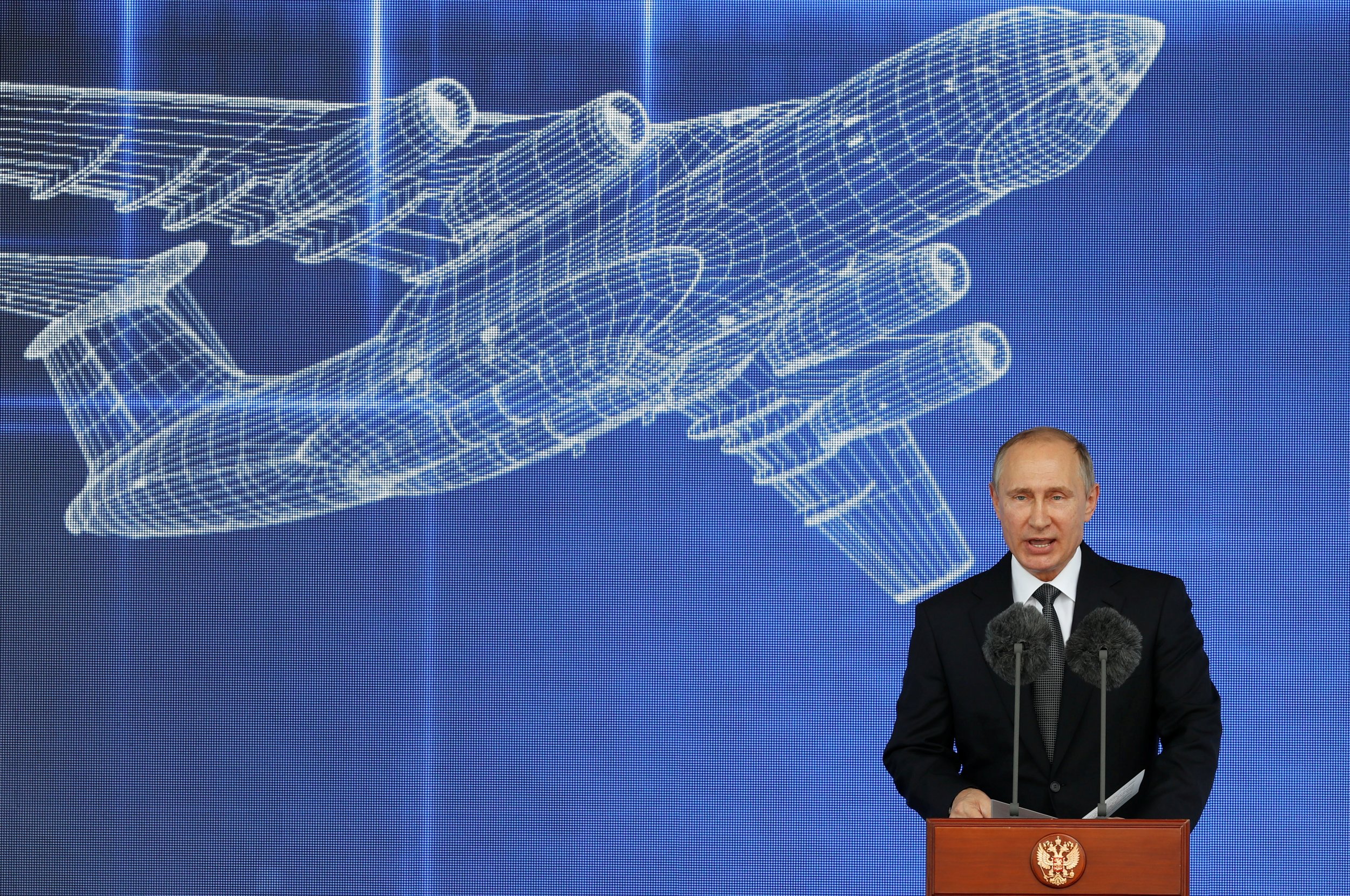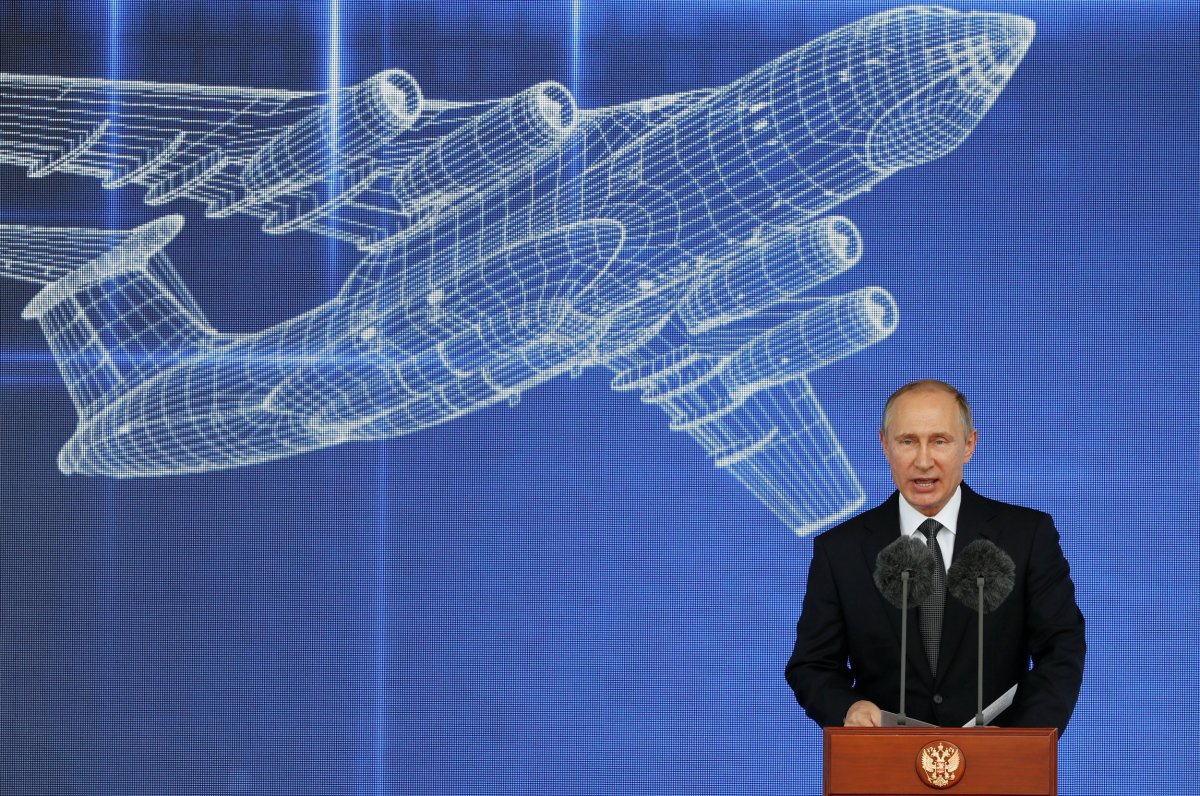
Russia is developing new missiles and drones that will use artificial intelligence to think for itself, according to weapons manufacturers and defense officials, in a bid to match military might against the United States and China.
Tactical Missiles Corporation CEO Boris Obnosov said Thursday that the new weapon, which he did not name, would be released within the next few years and would take inspiration from Russia's greatest military rival, the U.S. Speaking at the annual Zhukovsky-based MosAeroShow (MAKS-2017), Obnosov told attendees that he studied the U.S.'s use of the Raytheon Block IV Tomahawk cruise missile against Russia's allies in Syria and sought to emulate its advanced technology, such as the ability to switch targets mid-flight, in an upcoming weapon.
Related: Russian senator praises Trump for backing Kremlin in Syria by cutting ties to 'moderate' rebels
"Work in this area is under way. This is a very serious field where fundamental research is required. As of today, certain successes are available, but we'll still have to work for several years to achieve specific results," Obnosov said, according to the state-run TASS Russian News Agency.

While technically any weapons system capable of making its own decisions based on various sensors and tools incorporates some sort of artificial intelligence, the concept of giving a weapon the power to choose its targets has been a much more recent and controversial innovation, according to an article in The Diplomat. Last year, China claimed to pioneer such technology, according to The National Interest and the U.S. Navy is planning to weaponize artificial intelligence as part of its Long Range Anti-Ship Missile, which was explained in-depth in this Popular Mechanics article from last February.
Earlier this year, General Viktor Bondarev, commander-in-chief of Russia's air force, discussed equipping such smart missiles to the proposed next-generation Russian stealth fighter, the Tupolev PAK DA. What the PAK DA lacks in supersonic speed, it would reportedly make up for in stealth, electronic innovations and the artificial intelligence-capable missile, which Bondarev said was already in the works as of February.
"It is impossible to build a missile-carrying bomber invisible to radars and supersonic at the same time. This is why focus is placed on stealth capabilities. The PAK DA will carry AI-guided missiles with a range of up to 7,000 kilometers (about 4,350 miles) Such a missile can analyze the aerial and radio-radar situation and determine its direction, altitude and speed. We're already working on such missiles," Bondarev told Russia's official Rossiyskaya Gazeta newspaper in comments translated and analyzed by The Aviationist.
#Russia's 🇷🇺 new #MiG35 at #MAKS2017 pic.twitter.com/KLrfHuOF8u
— ГК РФ 🇷🇺 в Женеве (@RusConsulGen) July 19, 2017
It's not just missiles that will get a robotic makeover. In May, the head of another leading weapons group said he wanted to bring artificial intelligence to "swarms of drones." Armen Isaakyan, CEO of the Kronstadt Group, said that, while the technology may take some time to develop, he was looking forward to manufacturing such devices for both military and civilian purposes.
"It will, undoubtedly, happen in the future. To date, it's too early to talk about such 'swarms,' except for some secret programs, perhaps. Still, there already exist completely autonomous AI operation systems that provide the means for UAV clusters, when they fulfill missions autonomously, sharing tasks between them, and interact," Isaakyan told TASS Russian News Agency in remarks cited by Newsweek.
The U.S., Russia and China, in that order, are often considered the world's leading military powers. All three have typically sought to one-up the others with new, cutting-edge defenses and all three are interested in applying artificial intelligence to missiles, drones and other deadly devices.
Uncommon Knowledge
Newsweek is committed to challenging conventional wisdom and finding connections in the search for common ground.
Newsweek is committed to challenging conventional wisdom and finding connections in the search for common ground.
About the writer
Based in his hometown of Staten Island, New York City, Tom O'Connor is an award-winning Senior Writer of Foreign Policy ... Read more
To read how Newsweek uses AI as a newsroom tool, Click here.








